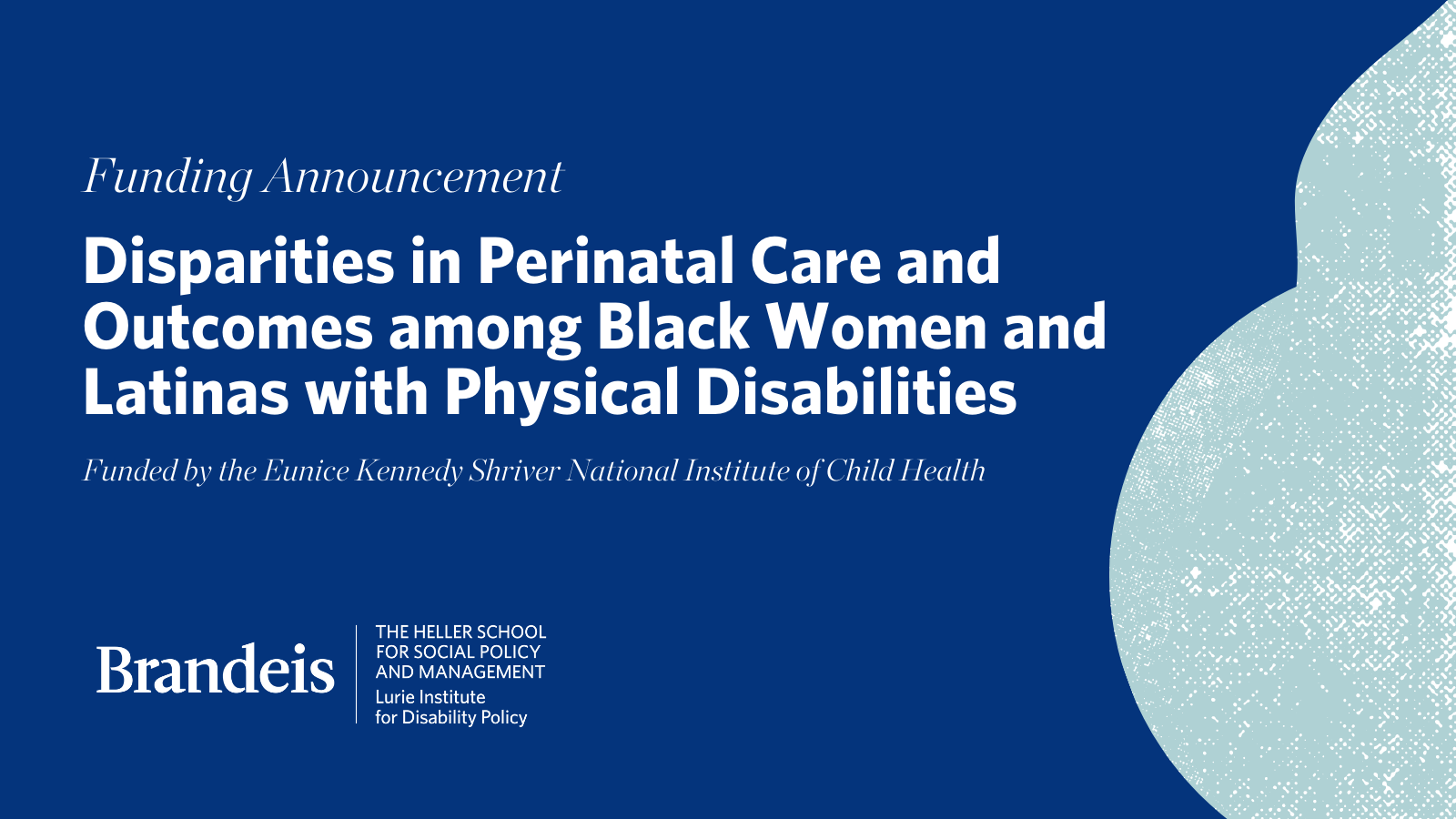
The Lurie Institute for Disability Policy is thrilled to announce that we have been awarded a four-year grant from the Eunice Kennedy Shriver National Institute of Child Health and Human Development (R01HD105712), part of the National Institutes of Health (NIH), to examine disparities in care and outcomes before, during, and after pregnancy among Black women and Latinas with physical disabilities. The generous $2 million award will support our work on the intersection of disability with race and ethnicity, specifically regarding perinatal experiences and health outcomes.
The research project will be co-led by Lurie Institute’s director, Dr. Monika Mitra, and Dr. Willi Horner-Johnson of Oregon Health & Science University. This project directly builds on our research team’s diverse and complementary array of expertise in disability research (Drs. Mitra and Horner-Johnson), racial and ethnic health disparities research (Drs. Amutah-Onukagha, Slaughter-Acey and Diop), obstetric care (Drs. Moore-Simas and Harris), quantitative and qualitative methods (Drs. Ritter, Akobirshoev, Amutah-Onukagha, Slaughter-Acey, Diop, Mitra, and Horner-Johnson), and lived experience of physical disability (Drs. Long-Bellil, Garr-Colzie, Palacios, Senda, and Watkins).
Black women and Latinas with physical disabilities are at increased risk of adverse pregnancy experiences and outcomes due to disparities based both on disability status and on race or ethnicity. Despite observation of these disparities by researchers, no known studies have investigated the intersection of disability and race/ethnicity in the context of perinatal care.
Lurie researchers aim to provide an assessment of these women’s pregnancy risks and outcomes, which will improve their pregnancy and postpartum care and experiences. The overarching goal of the project is to gain systematic understanding of pregnancy and infant health outcomes and pregnancy care costs for Black women and Latinas with physical disabilities and thus establish a foundation for the development and testing of future interventions to improve outcomes.
Specific aims of the research include:
- Using nationally representative data, compare the perinatal care that women receive as well as pregnancy-related complications, health outcomes, use of inpatient healthcare, and the costs they incur across race, ethnicity, and physical disability status to determine the combined effects of disability status with race and ethnicity;
- Using state-based linked data from Georgia, California, and Massachusetts to examine first-year health outcomes, healthcare utilization, and healthcare costs for women and their infants based on race, ethnicity, and physical disability to determine the combined effects of disability status with race and ethnicity; and
- Examine experiences, unmet needs, and barriers to perinatal care for Black women and Latinas with physical disabilities through interviews with women and obstetric care providers.
We are honored and grateful that NIH recognizes the importance of this research. This work will fill a critical gap in knowledge and understanding of the pregnancy-related experiences and outcomes of Black women and Latinas with physical disabilities before, during, and after pregnancy.
